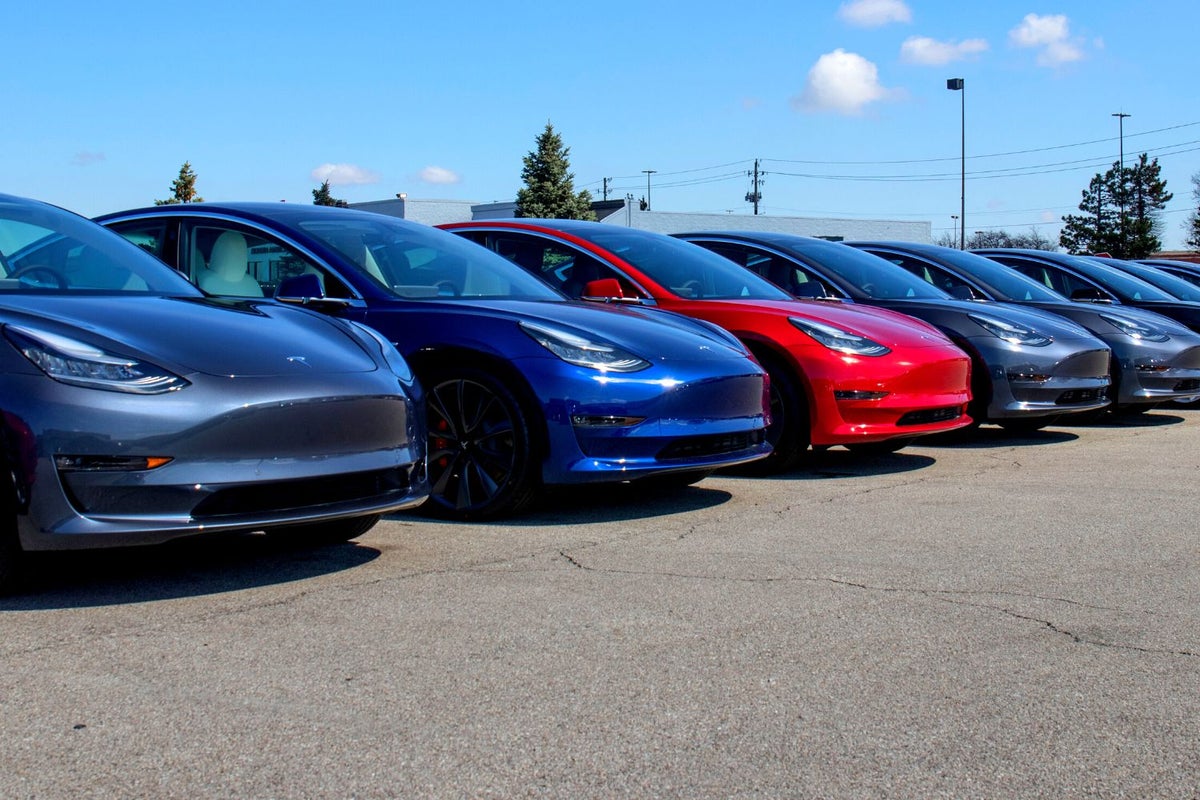[ad_1]
Tesla, Inc. ended 2022 as the worst-performing mega-cap stock, with some of the weakness attributable to worries concerning a slowdown in demand, especially in its key market, China.
More clarity on the demand front will emerge when the company reports its fourth-quarter deliveries early next week, possibly on Monday.
China A Wild Card: China, considered a vital cog in Tesla’s growth story, has proven to be its sore spot in the year that has just gone by. Production disruption due to a COVID-19 outbreak shuttered the company’s Giga Shanghai plant for about a month, starting in late March. After resuming production, the ramp-up was slow amid the zero-COVID policy in the country.
Tesla’s Giga Shanghai closed down yet again in July for factory upgrades.
Even as things were returning to normalcy, the country was hit with a fresh COVID wave in late 2022. Tesla did not disclose any production disruption, but domestic upstarts XPeng, Inc. XPEV and Nio, Inc. NIO complained of production shortfalls due to the COVID-19 situation.
But the demand side of the equation is apparently impacted, going by a slew of price cuts Tesla announced since late October. COVID-19 along with domestic competition has begun to weigh down on Tesla. Future Fund’s Gary Black, who has delved into Tesla’s woes multiple times recently, has said a lack of lower-priced cars in China is hurting the company.
Tesla’s China sales came in at 120,576 units in the third quarter, according to data from the China Passenger Car Association, which is about 35% of the company’s total global sales of 343,830 units. Aside from this, about 67,741 made-in-China cars were exported for sale during the quarter.
XPeng, Nio and Li Auto, Inc.’s LI December and fourth-quarter numbers released earlier on Sunday showed that these domestic electric vehicle startups prevailed despite the tough COVID-19 restrictions. This gives a reason to hope for a better-than-expected number from China.
In an internal email sent to employees last week, CEO Elon Musk urged them to go in for a big quarter-end push.
See also: How to Invest In Tesla (TSLA) Stock
Expectations Temper: Morgan Stanley analyst Adam Jonas, who is bullish on Tesla, said in a recent note that he expects fourth-quarter deliveries of 399,000 units. Buy-side consensus is between 410,000-425,000 units, the analyst said, citing the firm’s conversations with investors.
Tesla’s investor relations-compiled consensus estimate for fourth-quarter deliveries is 417,957 units, data shared by Black shows.
Tesla forecaster Troy Teslike has modeled deliveries of 423,000 units and production of 430,308 units for the quarter.
If Tesla hits the company-compiled consensus of around 418,000, the final annual tally, including the 908,573 units delivered in the first three quarters of the year, would be 1.327 million. This would mark a 41.7% increase from the 936,172 cars delivered in 2021. Tesla has a long-term delivery growth target of 50%. Despite the miss for the year, the fourth quarter number will likely be a new quarterly record.
Where’s The Stock Headed Near Term? Tesla stock is coming off a tough year, having fallen about 65% in 2022. After bottoming at $108.24 (its lowest price since mid-August 2020) on Wednesday, the stock picked up slight upward momentum.
Better-than-expected fourth-quarter deliveries could add strength to this move. On the contrary, a weak number will likely lead to a reversal. The next catalyst could be the fourth-quarter results due in late January. The string of price cuts, not only in China but also in the U.S. and Europe, do not bode well for margins.
When the stock opens for trading on Tuesday, Jan. 3, $110 could serve as support on any potential downside. Further down, the stock has support around the $94.5 level. In the eventuality of the recent bullish momentum accelerating, the stock could face resistance around the $129 and $146 levels.
Tesla closed Friday’s session up 1.12% at $123.28, according to Benzinga Pro data.
Read next: Tesla’s Pricing Power Will Suffer Due To New IRS Rules For EV Sales Credit, Analyst Says
Photo: Courtesy of Shutterstock.
[ad_2]
Image and article originally from www.benzinga.com. Read the original article here.

